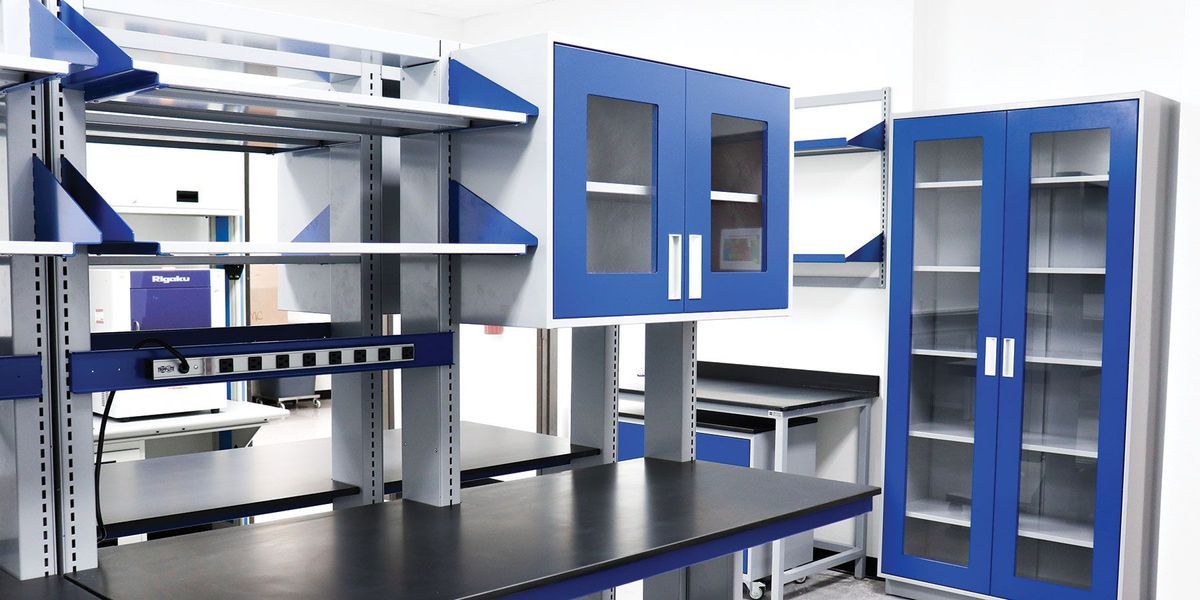Introduction
Laboratories are hubs of scientific discovery and innovation, where researchers, scientists, and students carry out experiments and studies to advance human knowledge. To optimize productivity, safety, and functionality, laboratory furniture plays a pivotal role. In this blog, we'll explore the essential aspects of designing the perfect laboratory furniture to create an efficient and safe workspace.
1.Understanding the Unique Requirements of a Laboratory
Laboratories have specific needs that set them apart from regular office or household environments. They require furniture that can withstand harsh chemicals, temperature variations, and heavy equipment. The furniture should also facilitate proper organization, provide easy access to tools, and enable researchers to work comfortably for extended periods.
2.Ergonomic Considerations for Laboratory Furniture
Ergonomics is crucial in laboratory design, as researchers often spend long hours conducting experiments. Adjustable chairs and workstations are essential to accommodate various users and promote good posture, reducing the risk of musculoskeletal injuries. Additionally, equipment should be placed at appropriate heights to avoid straining during usage.
3.The Role of Workbenches and Countertops
Workbenches and countertops are the foundation of any laboratory. They should be made from durable materials like stainless steel, chemical-resistant laminate, or epoxy resin to withstand chemical spills and mechanical stress. An integrated ventilation system can help mitigate fume exposure and ensure a safe working environment.
4.Storage Solutions for Safety and Organization
Proper storage is crucial in laboratories to minimize clutter and ensure safety. Cabinets and shelves designed for specific types of equipment and chemicals can prevent cross-contamination and accidental spills. Implementing color-coded storage can also help researchers quickly identify different materials and reagents.
5.Fume Hoods and Safety Cabinets
Fume hoods are essential in laboratories where hazardous substances are used. They help contain and expel fumes, gases, and volatile chemicals, protecting researchers from exposure. Safety cabinets are also necessary for storing flammable or toxic substances securely.
6.Seating Arrangements for Collaboration and Efficiency
Collaboration is a vital aspect of scientific research. Therefore, providing flexible seating arrangements, such as lab stools and benches, can encourage teamwork and foster idea sharing among researchers. The seating should be easy to clean and resistant to chemicals.
7.Specialized Furniture for Specific Laboratory Types
Different laboratories have unique requirements based on their research focus. For example, a microbiology lab would need sterile workstations, while an electronics lab might require anti-static surfaces. Understanding the specific needs of each laboratory type is crucial in designing tailored furniture solutions.
8.Mobility and Flexibility
Laboratories often need to reconfigure their layouts to accommodate new experiments or equipment. Therefore, incorporating mobile furniture options, such as rolling carts and adjustable workstations, allows for flexibility and easy adaptation to changing needs.
Conclusion
Laboratory furniture in libya plays a pivotal role in creating a safe, efficient, and productive workspace for researchers and scientists. By considering the unique requirements of laboratories, focusing on ergonomic design, providing ample storage solutions, and incorporating safety measures like fume hoods, designers can create an environment conducive to scientific exploration and discovery. A well-designed laboratory not only enhances research outcomes but also ensures the well-being of its users.
Reference Link(OriginallyPosted: https://ziebaqlibya.blogspot.com/2023/07/designing-perfect-laboratory-furniture_25.html


No comments yet